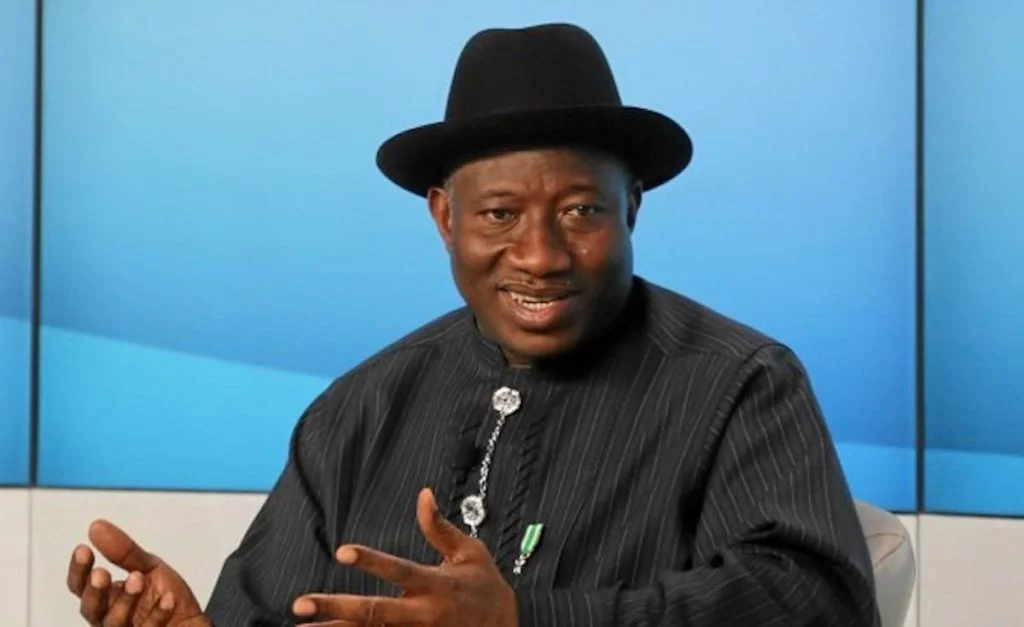Former President Goodluck Jonathan has urged the Church to take the lead in the crucial role of advancing Nigeria’s healthcare system.
Jonathan said this in his keynote address at the maiden edition of the Church of Nigeria Anglican Communion Health Summit in Abuja on Wednesday.
The former President, who was was represented by the former Executive Secretary of Nigeria Christian Pilgrims Commission (NCPC), Prof. John-Kennedy Opara, highlighted the Church’s historical contributions to health and education sectors.
While reflecting on the 2014 Ebola crisis, Jonathan acknowledged the bravery of healthcare workers, like doctor Stella Adadevoh, who lost their lives in the line of duty.
He also acknowledged the passage of the National Health Act signed into law during his administration, which he said had significantly improved healthcare access for millions Nigerians.
“The National Health Act 2014 established a framework for the provision of essential health services, the management of health resources, and the protection of patients’ rights.
READ ALSO: PICTORIAL: 91-year-old Billionaire Dies Weeks After Marrying Sixth Wife
“Today, over 10 million Nigerians across our various states have access to health insurance provided by the various state social health insurance schemes,” he said.
Accordimg to him, despite the progress, gaps remain, and I call on the Anglican Church to spearhead health insurance enrollment and bridge disparities in healthcare access.
He urged faith-based organisations to leverage their community influence to advocate for equitable healthcare policies and foster partnerships with both the government and private sector.
“The Church must harness its platforms and resources to lead a transformative health initiative that ensures that no Nigerian is left behind in the quest for quality, affordable healthcare,” he said.
The Primate of All Nigeria Anglican Church, Most Rev. Henry Ndukuba, outlined a visionary framework for integrating holistic health into the Church’s mission.
READ ALSO: Oil Sector In Shambles – APC Stakeholders Write Tinubu, Seek Removal Of Kyari, 2 Others
Ndukuba emphasised the Church’s historical role in pioneering healthcare in Nigeria, and recalled foundational efforts in establishing clinics and hospitals since the 19th century.
He called for a renewed commitment to comprehensive healthcare, blending physical, mental, and spiritual well-being in alignment with Biblical teachings and modern health standards.
According to him, there is the urgent need for the Church to address Nigeria’s healthcare challenges, exacerbated by corruption and inadequate government response.
The Primate proposed a series of strategic initiatives, including the establishment of the Church of Nigeria Health Commission to streamline and standardise healthcare services.
He also called for the establishment of a Health Maintenance Organisation (HMO) to cater to the healthcare needs of Nigerians.
READ ALSO: Controversial Bill: I Choose 20 Years In Prison Than Sing ‘Tinubu’s Anthem’ – Aisha Yesufu
He advocated for the development of pharmaceutical production and a fellowship for healthcare professionals to bolster the Church’s medical outreach.
Highlighting the Church’s potential to lead in healthcare and transform community well-being, Ndukuba urged Christian healthcare professionals to seize this “Kairos moment” for impactful service.
His address set the stage for the summit’s mission to develop a comprehensive health policy and blueprint for advancing the Church’s role in holistic health ministry.
On his part, Mr Peter Nmadu, Chairman of the National Steering Committee, emphasised the importance of healthcare in the church’s mission.
Nmadu acknowledged the challenges faced, including recent health crises and the need for a coordinated response.
He expressed gratitude to the church leadership and participants, urging collective effort towards a healthier future for the church and society.
The News Agency of Nigeria (NAN) reports that the summit aims to assess the church’s historical contributions to healthcare, develop strategies for improvement, and establish a comprehensive health policy.
